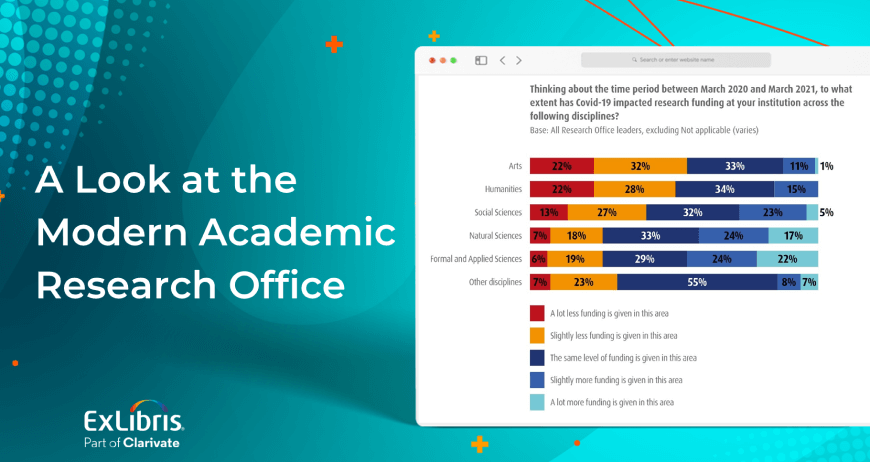At the end of our last blog post on new challenges facing academic researchers, we highlighted a comment in a report by the University of Cape Town in South Africa about the “culture of research” a research office can help promote at a university. Continuing our review of the Alterline study commissioned by Ex Libris, on the conduct and support of academic research, let’s break the “culture of research” down to explore concrete opportunities for the research office to improve support for researchers and drive measurable impact.
The Research Office’s Relationship with Researchers
Research offices have a key role to play in the activity of researchers, with expectations varying from institution to institution. As we noted in our last blog post, at each step of the process of managing research projects about half of the researchers surveyed said they did it themselves, rather than relying on support from others. However, the research office helped 27% of respondents with “finding relevant funding opportunities”, 26% with “applying for funding grants”, 22% with “managing article processing charges (APC)”, and 16% with “monitoring the impact of your research”. This makes the research office the leading source of support for all but one task (“finding relevant journals for publication,” for which researchers turned more to research assistants) among those who said they received help from others. The fact that those researchers who do seek help turn to research offices, while about half do not look for assistance at all, shows a clear opportunity for the research office to leverage their expertise and increase their support for all researchers.
Explore how Ex Libris library software can help transform your research office into a more effective and impactful resource for your academic community.










